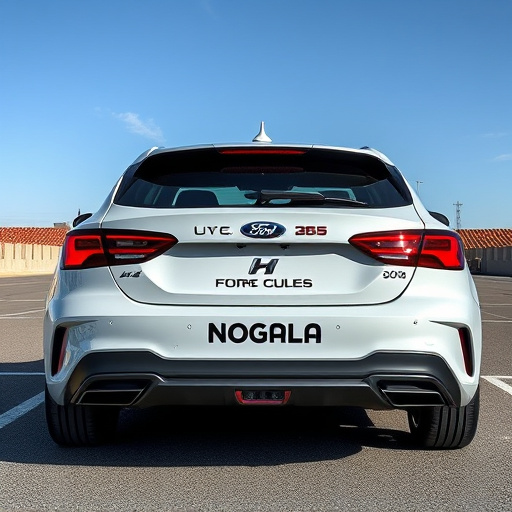In competitive B2B sales, custom quotes are crucial for building partnerships in sectors like automotive detailing and customization. These detailed proposals address client needs, showcase expertise, and build transparency, fostering stronger relationships. Crafting effective quotes requires understanding client goals, presenting tailored solutions, and providing clear, concise information on products, processes, and warranties. By aligning proposals with unique client requirements, sales professionals position themselves as trusted partners, enhancing sales success rates.
In the dynamic landscape of Business-to-Business (B2B) sales, understanding the art of crafting and leveraging custom quotes can be a game-changer. This article delves into the significance of custom quotes as powerful tools to cater to unique client needs and foster successful B2B transactions. From recognizing the value proposition to creating tailored proposals, we explore strategies to optimize the sales process, ensuring long-term partnerships. Discover how best practices in customizing quotes can enhance your B2B sales approach and drive business growth.
- Understanding Custom Quotes: Why They Matter in B2B Sales
- The Process of Creating Effective Custom Quotes
- Best Practices for Using Custom Quotes to Boost B2B Sales Success
Understanding Custom Quotes: Why They Matter in B2B Sales

In the dynamic landscape of B2B sales, understanding custom quotes is key to fostering successful partnerships. These tailored proposals are more than just price lists; they serve as a powerful tool for businesses to demonstrate their expertise and build trust with clients. Unlike off-the-shelf solutions, custom quotes address specific client needs, highlighting the unique value proposition of the service or product offered. By delving into the intricacies of each project, sales teams can create proposals that resonate with potential partners, showcasing their ability to deliver tailored, high-quality outcomes—a crucial differentiator in a competitive market.
In the context of industries such as automotive detailing and car customization, where precision and personalization are paramount, custom quotes play an indispensable role. Consider a scenario where a business specializing in paint correction receives a request for a unique, high-end finish. A custom quote allows them to detail the specific techniques, materials, and labor required, providing a clear picture of the final product and its associated costs. This transparency builds rapport with clients, ensuring they receive exactly what they need—a far cry from generic proposals that often leave important details hazy.
The Process of Creating Effective Custom Quotes

Creating effective custom quotes is a strategic art in B2B sales. It involves understanding the client’s unique needs and presenting tailored solutions that resonate with their specific requirements. The process begins with meticulous research, where sales professionals delve into the customer’s business, products, and industry trends. This knowledge allows them to craft quotes that address not just the product aspects, but also the client’s long-term goals and challenges, especially when considering high-value services like ceramic coating or vinyl wraps for enhanced protection, such as UV protection.
Quotes should be clear, concise, and comprehensive, detailing every aspect of the offering—from material specifications to installation processes and warranty information. For instance, when offering a custom quote for vehicle graphics or architectural signage, specifying the type of vinyl used, its durability, and any special effects desired, provides a transparent picture. This level of detail not only builds trust but also ensures clients understand the value and quality they’re investing in, fostering stronger business relationships.
Best Practices for Using Custom Quotes to Boost B2B Sales Success

In the fast-paced world of B2B sales, custom quotes are a powerful tool to differentiate your business and boost success rates. When crafting quotes for potential clients, personalization is key. Tailor each quote to the specific needs and pain points of the buyer’s business, demonstrating an understanding of their unique challenges. This level of customization builds trust and positions your company as a trusted partner rather than just another supplier.
Best practices include offering detailed explanations for every line item in the quote, ensuring transparency. Highlight any value-added services or benefits that set you apart from competitors. For instance, if you provide custom vehicle wraps or heat rejection solutions, elaborate on how these enhancements can improve the client’s operations or reduce costs in the long run. Provide a clear call to action, making it easy for prospects to move forward with the quote and engage in open communication throughout the sales process.
Custom quotes are a powerful tool in the B2B sales arsenal, allowing businesses to tailor their offerings to specific client needs. By understanding the importance of these quotes and implementing best practices, sales teams can enhance customer engagement, build stronger relationships, and ultimately drive sales success. The process of creating custom quotes should be strategic, considering the client’s unique requirements, while also ensuring profitability for the business. Embracing this approach can lead to more satisfied customers and a competitive edge in the B2B market.














